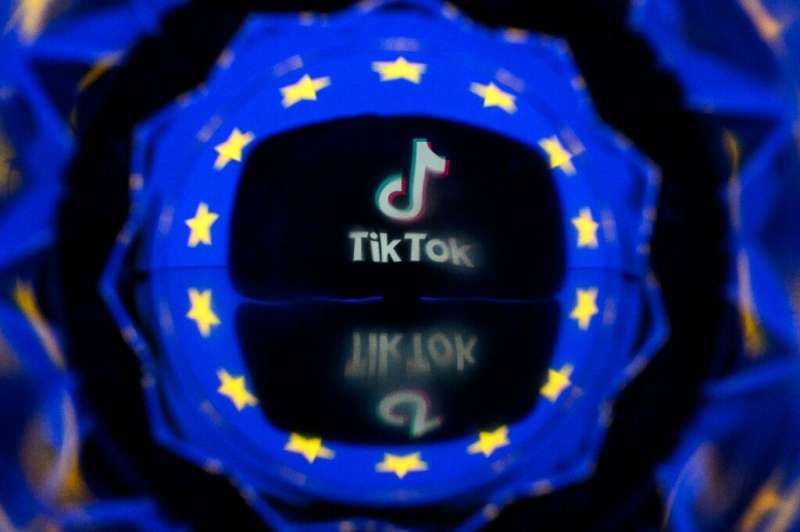
The EU on Monday announced a formal investigation into TikTok over alleged breaches of its obligations to protect minors online, under a landmark new law on policing digital content.
It is the second probe into a major online platform since Brussels introduced the Digital Services Act (DSA), after targeting tech billionaire Elon Musk's X in December.
Brussels is particularly concerned that the video-sharing app owned by China's ByteDance may not be doing enough to address negative impacts on young people.
A key worry is the so-called "rabbit hole" effect—which occurs when users are fed related content based on an algorithm, in some cases leading to more dangerous content.
The European Commission's concerns also include TikTok's age verification tools, which it said "may not be reasonable, proportionate and effective".
The commission opened "formal proceedings to assess whether TikTok may have breached" the DSA in other areas including "advertising transparency" and "data access for researchers".
The action comes after analysing a risk assessment report by TikTok and its replies to Brussels' requests for more information about what measures the video-sharing platform has taken against illegal content, the protection of minors and access to data.
'Spare no effort'
Regulators will continue to gather evidence, the commission said, adding that the move empowered it to take further enforcement steps if necessary.
"As a platform that reaches millions of children and teenagers, TikTok must fully comply with the DSA and has a particular role to play in the protection of minors online," said the EU's internal market commissioner, Thierry Breton.
"We are launching this formal infringement proceeding today to ensure that proportionate action is taken to protect the physical and emotional well-being of young Europeans. We must spare no effort to protect our children," Breton added.
TikTok has over 142 million monthly users across the EU, up from 125 million last year.
"TikTok needs to take a close look at the services they offer and carefully consider the risks that they pose to their users—young as well as old," commission executive vice president Margrethe Vestager said.
The formal probe will focus on four areas: how TikTok assesses and mitigates systemic risks; how the company is complying with protecting minors' privacy and safety; TikTok's measures on providing a "reliable" advertisement repository and the steps taken to increase transparency.
TikTok said it was working to protect minors online.
"TikTok has pioneered features and settings to protect teens and keep under 13s off the platform, issues the whole industry is grappling with," a TikTok spokesperson said.
"We'll continue to work with experts and industry to keep young people on TikTok safe, and look forward to now having the opportunity to explain this work in detail to the Commission."
Risk of fines
There is no deadline for the completion of the proceedings.
The DSA gives Brussels the power to levy heavy fines, with penalties for violations that can include fines going up to six percent of a digital firm's global revenues.
The commission can even block platforms in the 27-nation bloc for serious and repeated violations.
The EU law came into effect last year for the world's biggest online platforms including TikTok and X as well as Facebook and Instagram.
The new rules demand companies do more to police content online, but also expect digital retailers to act swiftly and effectively to protect shoppers online.
The DSA law has applied to all platforms since February 17.
© 2024 AFP
Citation: EU launches probe into TikTok over child protection (2024, February 19) retrieved 19 February 2024 from https://techxplore.com/news/2024-02-eu-probe-tiktok-child.html
This document is subject to copyright. Apart from any fair dealing for the purpose of private study or research, no part may be reproduced without the written permission. The content is provided for information purposes only.
